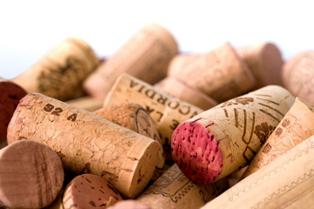If the wine tastes bad, it may be the cork’s fault. New research from the University
of Houston Conrad N. Hilton College of Hotel and Restaurant Management indicates chemicals
from contaminated corks are transmitted to the wine and spoiling the contents. Lecturer Aaron Corsi and Associate Professor Jay Neal found electron-beam irradiation
to be a safe and cost-effective way for cork producers to eliminate the problem.
“The most common chemical responsible for taint is 2,4,6-Trichloroanisole, or TCA, which is transmitted to wine via contaminated cork, wood barrels or other winery surfaces,” Corsi said. “Once a wine is tainted, there’s no way to fix it. So we focused on reducing or eliminating the most common molds known to cause TCA on corks.”
Corsi and Neal inoculated the four most popular kinds of cork used by manufacturers with six different molds known to produce TCA, and then treated those corks with electron-beam irradiation. They used equipment at the SADEX Corporation in Sioux City Iowa. After an incubation period, they found no sign of the molds, and the corks maintained their structural integrity.
E-beam irradiation, which uses high-energy electrons to destroy pathogenic microorganisms,
mold and spoilage bacteria, has already been approved by the FDA for use on food products
like ground beef, poultry and spices. 
“While any wine drinker can identify the off-putting aroma and taste of tainted wine, most are likely unaware of TCA and the role it plays in that phenomenon,” Corsi said. “Instead, their experience leads them to make negative judgments about the quality of individual wineries’ products, and even the restaurants that serve them. By eliminating the molds that cause TCA through e-beam irradiation, we can reduce that negative experience for consumers and the negative impact it has on the industry.”
Research indicates nearly four out of 10 bottles of wine are ruined by tainted corks, resulting in global losses of more than $10 billion annually.
Neal studies food microbiology and food safety, particularly during post-harvest of food products.
Corsi teaches courses in brewing and distillation science, wine and winemaking, and viticulture (the study of grapes and vineyards). He is the brewmaster and co-founder of 8th Wonder Brewery in Houston.